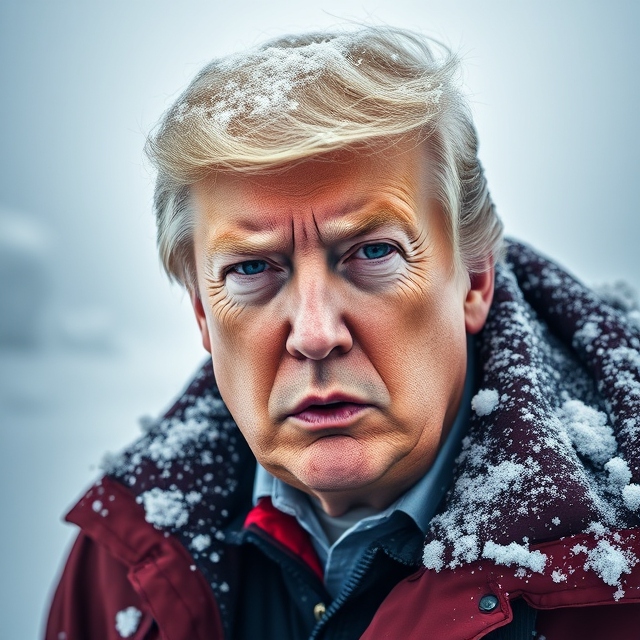
Strategic Arctic Interests: Trump’s focus on incorporating Canada and Greenland stems from the Arctic’s geopolitical importance, with melting glaciers opening new trade routes and access to valuable resources.
Tensions with Sovereignty: The U.S.’s expansionist ambitions challenge the sovereignty of Canada and Greenland, violating international norms and raising concerns about global rule of law.
NATO and Geopolitical Dilemmas: Trump’s rhetoric highlights a paradox within NATO, questioning how the alliance would handle internal aggression while showcasing selective enforcement of international rules.
The newly elected President of the United States has been going ballistic with ambitious plans, showing no mercy towards Canada and Greenland. He has made it clear that it’s a high priority for the U.S. to include Canada as the 51st state. He has also expressed similar ambitions regarding Greenland, stating that if Canada resists, he would use economic force to take over. Though he has ruled out military action against Canada, he hasn’t given the same assurance about Greenland. He warned that if Greenland doesn’t become part of the U.S., heavy tariffs would be imposed on Denmark. Greenland, while self-ruled, is politically part of Denmark. In response, Danish Prime Minister Frederiksen firmly stated that Greenland is not for sale and remains part of Denmark.
This brings us to a fundamental question: why has Donald Trump suddenly shifted focus to Canada and Greenland? To understand this, we need to explore the similarities between these regions. Both Canada and Greenland are part of the Arctic, a territory that is becoming increasingly significant in global geopolitics.
Trump’s interest in Canada and Greenland likely stems from the strategic advantages these regions offer. The Arctic, once a barren, cold desert, is now seen as a potential treasure trove due to Arctic amplification. This phenomenon, driven by global warming, is causing the Arctic glaciers to melt at a much faster rate than elsewhere in the world. As a result, new maritime routes are opening up in the Northern Hemisphere, providing easier and more convenient access from Russia to the U.S. These routes can save time and resources, creating new opportunities in geo-economics.
The Arctic is also rich in natural resources like oil and shale gas. Russia, with its vast geography, has been a dominant power in the region, particularly through its focus on the Northern Sea Route. This route offers Russia a strategic advantage, giving it direct access to natural resources and enhancing its geopolitical influence. To compete in this new arena, the U.S. would benefit from control over Greenland and Canada, two key Arctic territories. Gaining influence in these regions could provide the U.S. with the same strategic advantages that Russia currently enjoys, allowing it to expand its presence and influence in the Arctic.
Isn’t it paradoxical that NATO, an alliance that stipulates the activation of collective defense (Article 5) if any member is attacked, faces a complex dilemma if the aggression comes from within? This raises an intriguing question: what happens if a NATO member country initiates aggression against another member? This scenario highlights a critical point about the rule of law and the nature of international rules—they are often shaped by those in power, and their enforcement can be selective, depending on the interests of dominant players.

The United States may have strategic interests in the Arctic, but that doesn’t justify an expansionist approach. Such ambitions undermine the sovereignty and national security of countries like Denmark and Canada. The idea of incorporating Canada and Greenland into the U.S. is not only a blatant disregard for their sovereignty but also a violation of international norms. Another pressing question is why the Canadian media and the liberal government remain silent on this issue. They were vocal and assertive when addressing allegations against India, yet they exhibit a puzzling silence in the face of direct threats to their own nation. This silence raises questions about the consistency and duplicity of global politics. Ultimately, this expansionist rhetoric contradicts the principles of the rule of law and should be challenged by both the nations targeted and the broader international community.
References:
1)https://www.usatoday.com/story/news/politics/2025/01/07/who-owns-greenland-trump/77518561007/
2)https://www.nature.com/articles/s43247-022-00498-3
Aayush Pal is a freelance writer on contemporary geopolitical developments. The views expressed in his work are entirely his own.
